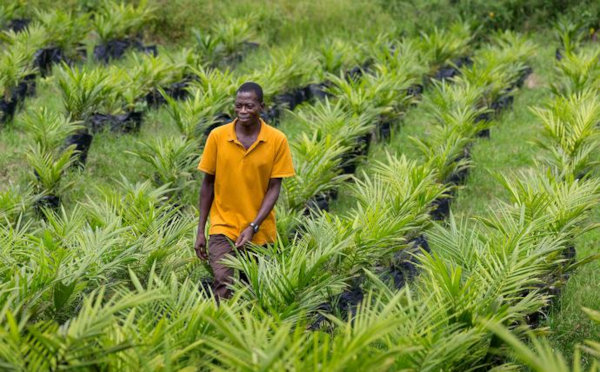Bishop Samuel Quire believes rural development is the key to the future of the UMC in Liberia.
JOEY BUTLER
United Methodist News Service
The Liberia Conference’s agricultural center in White Plains doesn’t look like much. About an hour outside Monrovia, hundreds of acres of overgrown land surround buildings in various stages of ruin — roofs missing, walls caving in. But the Rev. Joseph Theoway doesn’t see what’s there now; he sees what will be there.
“Our vision is that by 2029 we’ll have an agriculture program that will surpass pre-civil war levels, that will be instrumental in generating income and empowering the conference as a whole,” said the director of the conference’s United Methodist Rural and Agricultural Development Program.
Theoway remembers when these buildings were in good shape and fully functioning. He managed this facility during his first stint directing the conference’s agricultural ministry. Two civil wars that raged through Liberia from 1989-2003 destroyed the facility and much of the country’s infrastructure.
“We were stripped of our logistics, we lost vehicles,” Theoway said. “After the war, not much has been done in terms of rehabilitation because of financial resources.”
The war forced Theoway to flee with his family to Ghana. He returned to his post last year at the request of newly elected Liberian Bishop Samuel J. Quire Jr.
Quire emphasizes the need for the Liberian church to be more self-sufficient and to help supplement pastors’ salaries. Quire also believes rural development and increased agricultural production is a key way to make that happen.
READ MORE.
Last Updated on October 27, 2023

